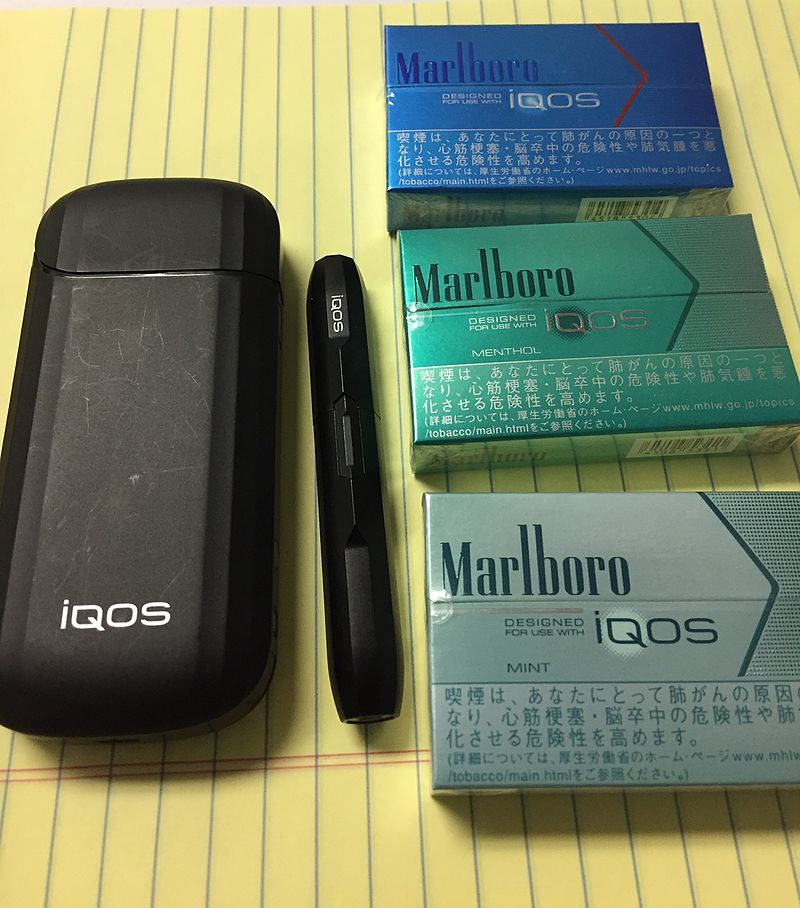Tobacco sticks designed to be heated in an electronic device have run afoul of NZ law, with charges laid against their manufacturer.

The Ministry of Health has charged tobacco giant Philip Morris with illegally importing and selling a new product that heats tobacco sticks in a battery-powered device rather than burning them.
The device itself is permitted, but the tobacco sticks it uses — known as HEETS — have been deemed illegal under the Smoke Free Environments Act 1990.
A media release from MoH states that charges have been laid at the Wellington District Court and the case has been set down for its first appearance hearing 2 June 2017.
The SMC gathered expert reaction to the announcement. Feel free to use these comments in your reporting.
Professor Janet Hoek, co-director ASPIRE 2025, University of Otago, comments:
“It is good to see the Ministry of Health holding tobacco companies to account, but it would be even better to see the Government develop a comprehensive plan that will achieve the Smokefree2025 goal.
“These tobacco stick products are marketed as ‘smoke-free’ replacements for conventional cigarettes, and promoted as a means to reduce harm from smoking. However the research on these new types of products is limited.
“Before any new tobacco products are introduced to New Zealand, we need clear evidence that these will contribute to the Smokefree2025 goal. That is, new products should have to demonstrate they support complete smoking cessation more effectively than existing cessation options.
“If the Government does allow more diverse tobacco products to be sold within New Zealand, it is crucial that it does not see this step as an alternative to the well-established measures known to reduce smoking prevalence. It must continue with its programme of tobacco excise tax increases, and it should use the tax revenue obtained from tobacco to support quitting among groups where smoking prevalence peaks.
“It should also take urgent steps to reduce the widespread availability of tobacco products, and make tobacco more difficult to consume in settings where second hand smoke will harm others (such as cars).”
Associate Professor Natalie Walker from the University of Auckland, National Institute for Health Innovation Programme Leader – Tobacco and Addictions, comments:
“I applaud the Ministry of Health for prosecuting Phillip Morris for “illegally importing and selling” their new ‘Heat-not-burn’ reduced risk tobacco product in New Zealand – not because I dislike the product Phillip Morris are pushing, but because they think they are above the law. Their behaviour is arrogant and disrespectful – and we should be enraged.
“Smoked tobacco products involve the burning (or combustion) of tobacco. Smoking kills two in every three users, and has a significant impact upon the health of Māori and their whānau. ‘Heat-not-burn’ products, as the name suggests, heat the tobacco rather than burning it, which (according to Phillip Morris) “reduces or eliminates the formation of many of the compounds that are produced at the high temperatures associated with combustion.” This is why heat-not-burn products are considered ‘reduced risk’ tobacco products.
“The fact that a number of tobacco companies are investing in heat-not-burn products appears to be a nice change in attitude – now all of sudden tobacco companies want to help reduce the harms caused by smoking.
“But is this true? I would argue that it’s not. If they were truly committed to reducing the risk of harm to their customers they would remove their most harmful product (conventional burnt tobacco) from our shelves – but this is not what they plan to do.
“Instead they aim to continue to sell one product that kills and one product that is less likely to kill – a foot in both camps. In the end it’s all about money. Current heat-not-burn products have less tobacco in them and therefore will be taxed less, yet international data indicate these products are priced at the same level as conventional burnt tobacco. In other words, there is considerable profit to be made from the sale of heat-not-burn products.
“Do heat-not-burn and other reduced risk nicotine and tobacco products have a place in New Zealand’s Smokefree 2025 journey? Although smoking rates in New Zealand are declining overall, there remain subgroups of the population who have higher than average smoking rates, and associated higher rates of smoking related death and disease.
“For example, people from low socioeconomic groups, people with mental health issues and people with alcohol and other drug problems. Such subpopulations want to quit smoking and do try, but find the journey to becoming Smokefree longer and harder.
“Current smoking cessation medication and support is having little impact on smoking prevalence in these subgroups – perhaps it’s time to look at other strategies to help them. This is one of the reasons the government recently announced that they will increase access to e-cigarettes (a reduced risk nicotine product), and are looking at policy to enable access to reduced risk tobacco products, such as smokeless tobacco and heat-not-burn products. Phillip Morris decided not to wait for the government to do this – they took matters into their own hands and broke the law in doing so.
I would urge the government to be bold – tell all tobacco companies to get their combusted tobacco out of our country – it’s not our future – maybe then we’ll consider more favourably the place of their reduced risk tobacco products for our priority populations that they have harmed the most.”